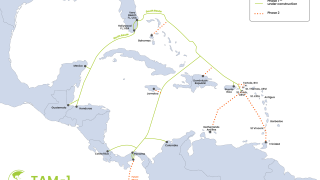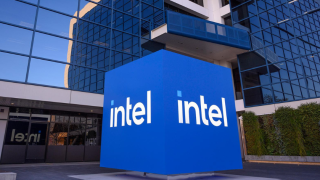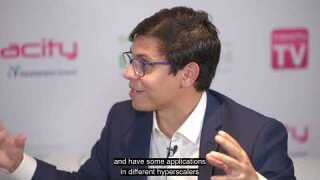If the proposed sale of Cable&Wireless Worldwide (CWW) to Vodafone proves anything, it is that public shareholders still struggle to put a competitive value on network assets.
Before Vodafone finally fleshed out a bid, shares in the UK telecoms group had collapsed by almost two-thirds, reflecting fears among institutional investors that the business had never quite managed to put the telecoms meltdown behind it.
But while stockholders still view telecoms assets with considerable suspicion, private equity investors are ready to pounce. Last month, Zayo arranged a $290 million financing package with new and existing backers desperate to bolster their exposure to the metro fibre market as part of its $2.2 billion bid for AboveNet.
Meanwhile, Doughty Hanson, one of the best known private equity firms in Europe, snapped up Dutch fibre company Eurofiber and CVC Capital Partners bought Hong Kong-based City Telecom for $644 million. And that’s just to name a few.
While institutional investors such as pension fund managers apparently fret over the commoditisation of some telecoms services, private equity players see only strong and growing cash flows and a fragmented market ripe for consolidation.
Mark Bernier, managing director and telecoms team leader at GE capital, a specialist Wall Street boutique that directly finances private equity companies in telecoms and technology, is typically bullish: “With solid top line growth and a growing EBITDA in data centres, hosting, metro fibre and towers, there is continually a significant capex increase for our borrowers”.
Bernier said GE Capital closed 17 deals last year, amounting to over $1.6 billion in value. Indeed, if 2010 was slow and 2011 picked up, 2012 could prove most affluent for financial buyers.
The value of private equity
“Private equity investment gives you simplicity,” says Chuck Green, CEO of Helios Towers Africa, a tower operator backed by private equity giants Helios Investment Partners. “With the backing of PE we get a well capitalised business, an active board and a commitment to what we need – I don’t know where you get that other than through private equity.” Green is an industry veteran.
With a background in finance, he “managed money for JP Morgan a long time ago”, before several senior roles in companies ranging from commercial real estate to the oil and gas investment businesses. His CEO role at tower operator Crown Castle, a start-up portfolio entity of two private equity companies, gave him the experience of dealing with such aggressive investors and the ability to manage an extensive network of towers.
Now at Helios Towers Africa (HTA), he has facilitated the growth of the company in this rapidly growing market. HTA now has over 3,500 sites in four African markets, with plans to expand into east Africa through a recently announced $85 million cash injection.
Green further confirmed HTA has the ambitious target of doubling its site capacity in the next 18 months. “Developments in the east and our further targets is a positive statement for the investment profile of Africa,” says Green. “There is a considerable amount of confidence shown in us, and for other private equity investors, it says a lot about the opportunity.”
Private equity investors have almost universally been attracted in recent years to the three pillars of communications; data centres, fibre networks and wireless towers. It is in infrastructure companies that prospective investments occur in earnest, considering the strong and defensible competitive position they bring, in addition to a business model with high margins and a considerably powerful operating leverage.
“Growth in strong secular trends such as mobile data, fixed, the proliferation of the cloud and hosted applications are enabling this sector to outperform the broader economy by a wide margin,” says James Henry, senior managing director at US investment bank, Bank Street. “Infrastructure companies and the US metro markets in particular are attractive because they offer the ability to use debt capital to finance acquisitions and organic growth, which enhances equity returns.”
And with the US metro markets already subject to widespread investment this year, there is no indication whatsoever this is set to curb. Aside from the Zayo AboveNet deal, metro fibre and bandwidth provider Lightower Fiber Networks, a portfolio company of M/C Venture Partners and Pamlico Capital was subject to a $380 million credit raising facility from Bernier’s GE Capital in February.
Insight research estimates the US private line market will be worth over $43 billion in annual revenue by 2016, and Henry expects the metro fibre market to continue to be of great interest to equity investors and senior lenders for years to come.
“The fact is, despite large investments, players like Zayo, AboveNet, Lightower and XO, to name a few, only have a small sliver of the market, so they clearly have the opportunity of double-barrelled play,” he says. “They will participate in growth of the overall market and grow their share at the expense of legacy providers.”
Europe too, is seeing similar developments. $100 million was injected into Russian infrastructure provider Russian Towers in February this year, with Macquarie Renaissance Infrastructure Fund, led by investor Damien Secen, putting up the bulk of $50 million. Emerging market player ADM Capital and Russian-focussed private equity fund UFG made up the additional investment. The play could bring considerable benefits to European infrastructure if proved successful, particularly because it introduced the concept of multi-tenant ownership in the European market, a model presently successfully deployed in the US.
“This investment in Russia simply highlights how communications and data infrastructure services is expanding beyond US metro and is starting to become a truly global phenomenon,” added Henry.
Top 10 backers
Capacity identifies the top 10 financial backers active in the telecoms market:
| Michael Choe, managing director, Charlesbank Michael Choe was appointed as managing director Charlesbank in 2006. Based in Boston, Choe was seen as influential in Charlesbank’s equity commitments of $290 million in Zayo’s acquisition of AboveNet. He also sits on the boards for portfolio companies DEI Holdings, Horn Industrial Services and OnCore Manufacturing. Choe lived in Seoul, Korea before completing a BA in Biology at Harvard and then spent a year at the London School of Economics. Fluent in Korean and Japanese, Choe is known to be an avid runner and skier. |
| Lorne Somerville, partner, CVC Capital Partners |
| Mark Bernier, managing director and team leader, GE Capital Telecom, Media and Technology (TMT) |
| >Phil Canfield, Principal, GTCR The brains behind GTCR’s investment in Zayo, Canfield joined the company in 1992 before becoming a principal in 1997. He has been focussed on the information services and technology group at the company since 1996, after becoming co-head of the division. Aside from Zayo, Canfield has played a leadership role in a number of investments in the space, including AppNet, Transaction Network Services and DigitalNet. Canfield is an active member for the Chicago Foundation for education, a non-profit organisation that seeks to improve the educational experience of Chicago’s public school children. |
| Chuck Green, CEO, Helios Towers Africa Founder and director of Helios Towers Nigeria, Charles ‘Chuck’ Green was formerly a partner at portfolio operations group HIP. His other roles include CFO and global head of finance at Crown Castle International (CCI), one of the world’s largest independent tower operators. At CCI, Chuck raised in excess of $5 billion of capital and led the company’s IPO and move to the New York Stock Exchange. He was also a member of the team that executed 10 sales/leaseback and master lease transactions over three years, with mobile operators and broadcasters in the US and across the world. |
| John Siegel, partner, Columbia Capital |
| Henrik Kraft, co-leader, media and communications, KKR |
| James Henry, co-founder and managing director, Bank Street |
| Damien Secen, CEO and co-chairman, Macquarie Renaissance Investment Fund (MRIF) |
Anders Misund, partner, EQT |




